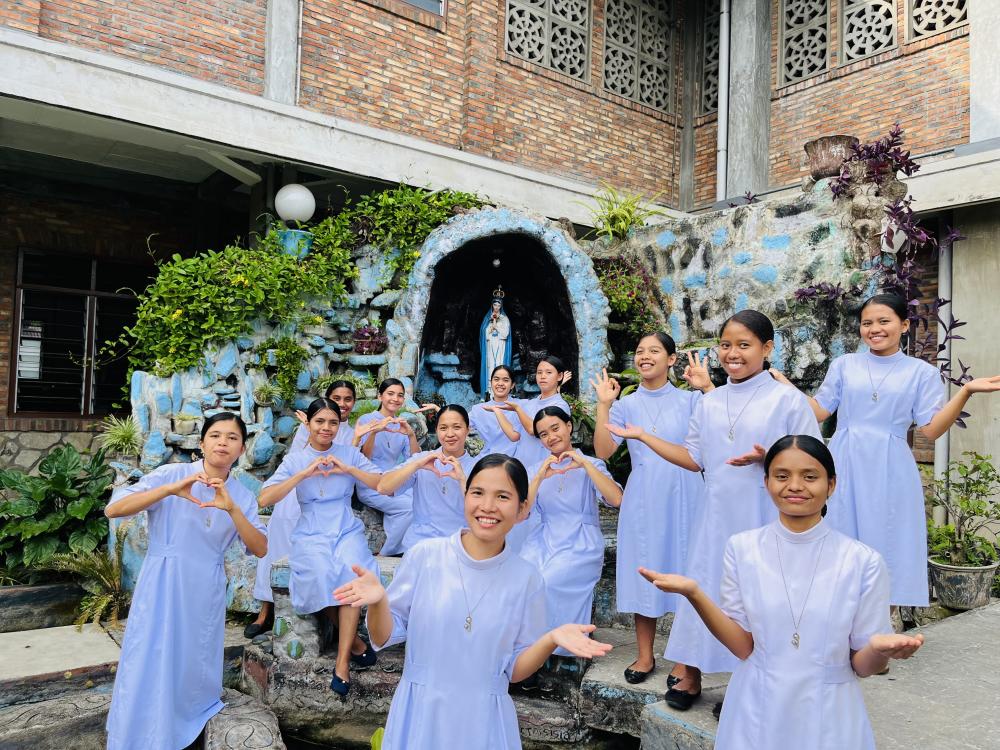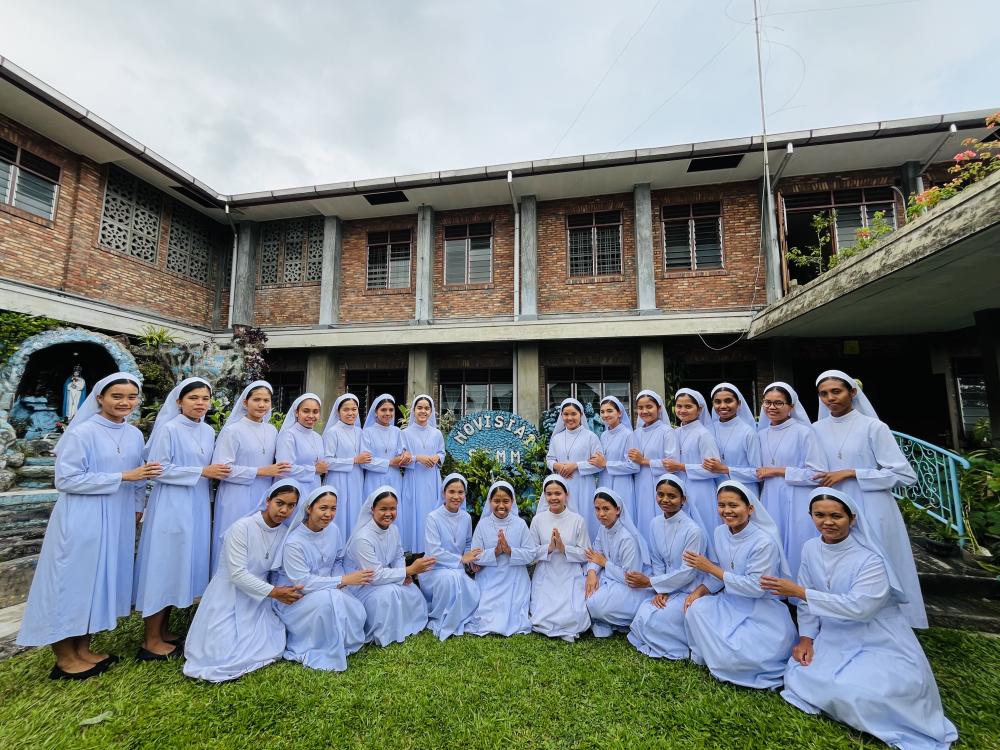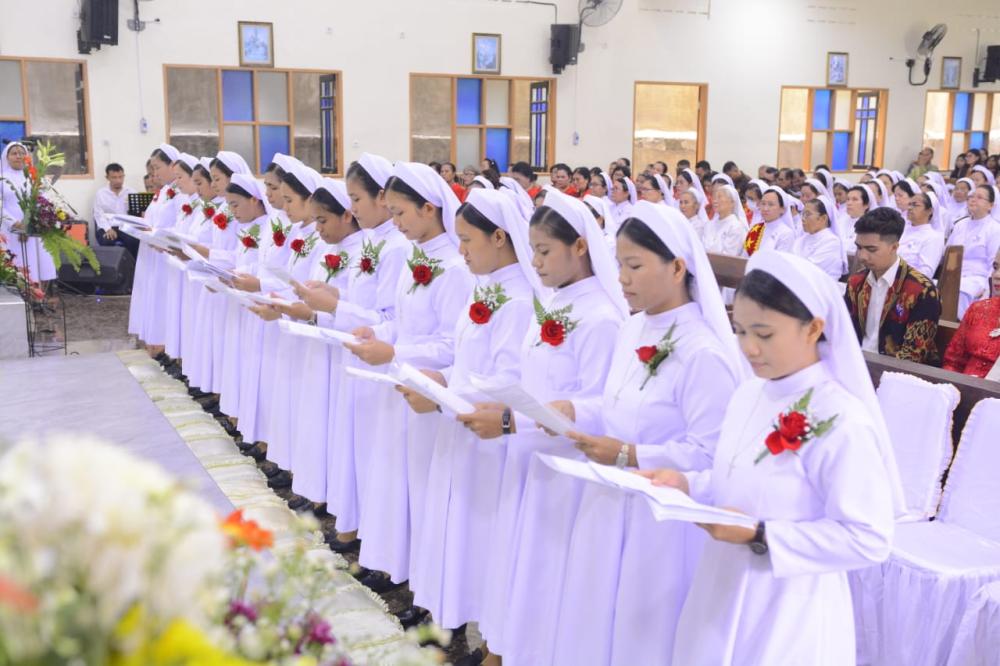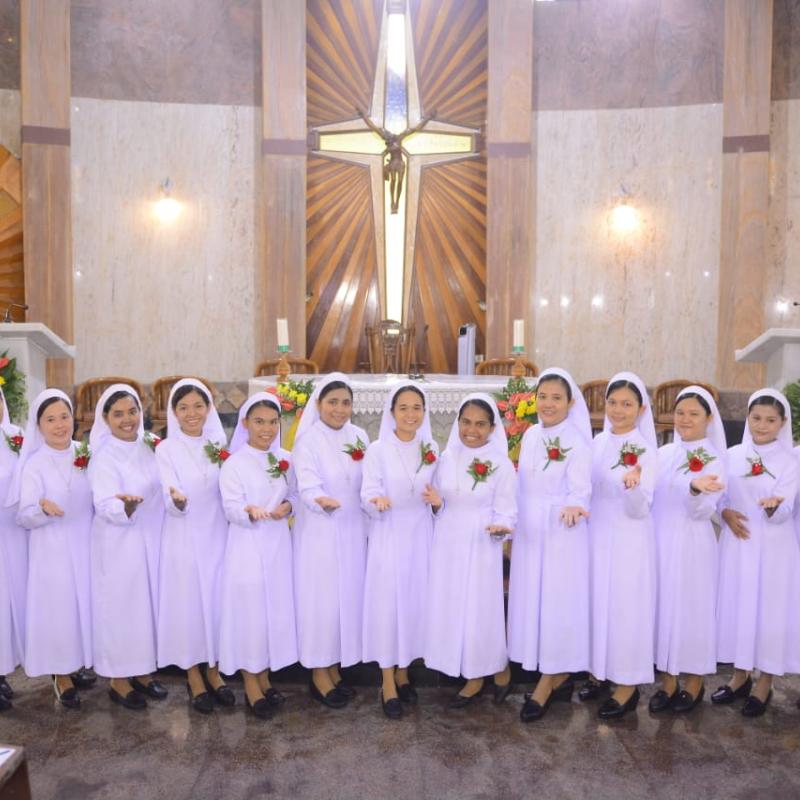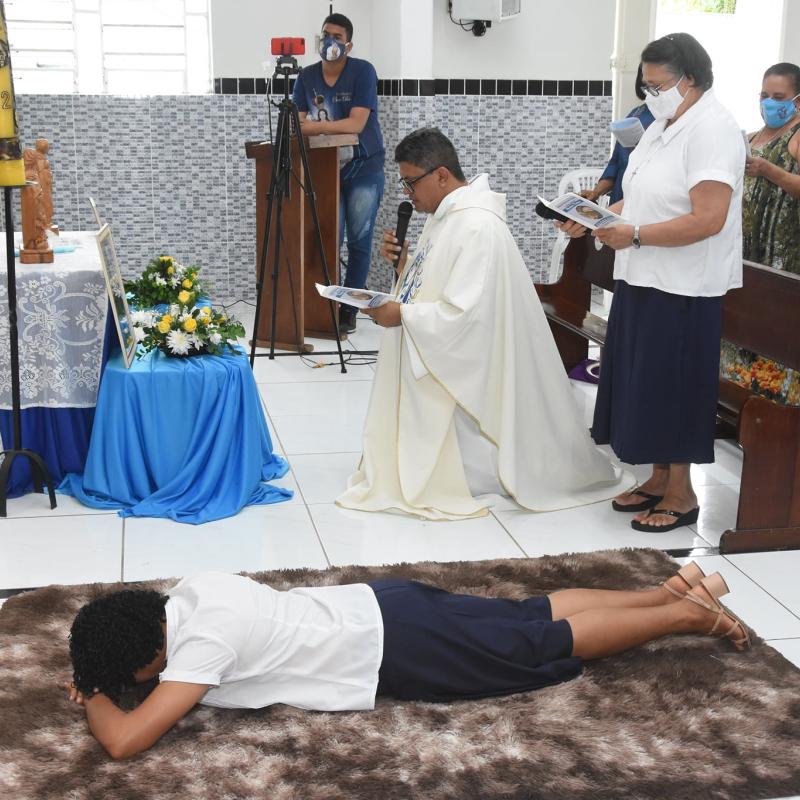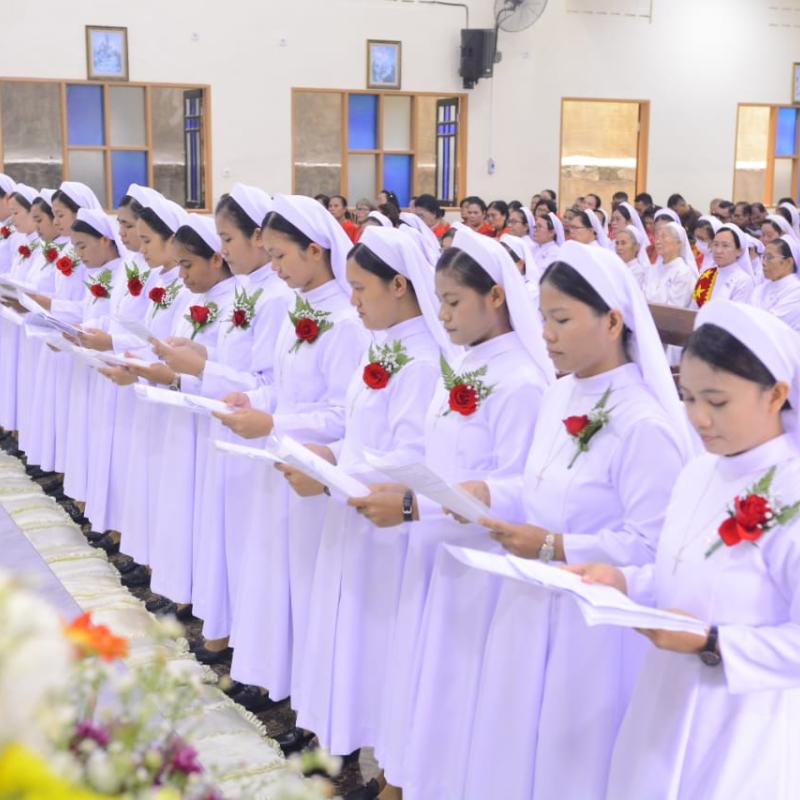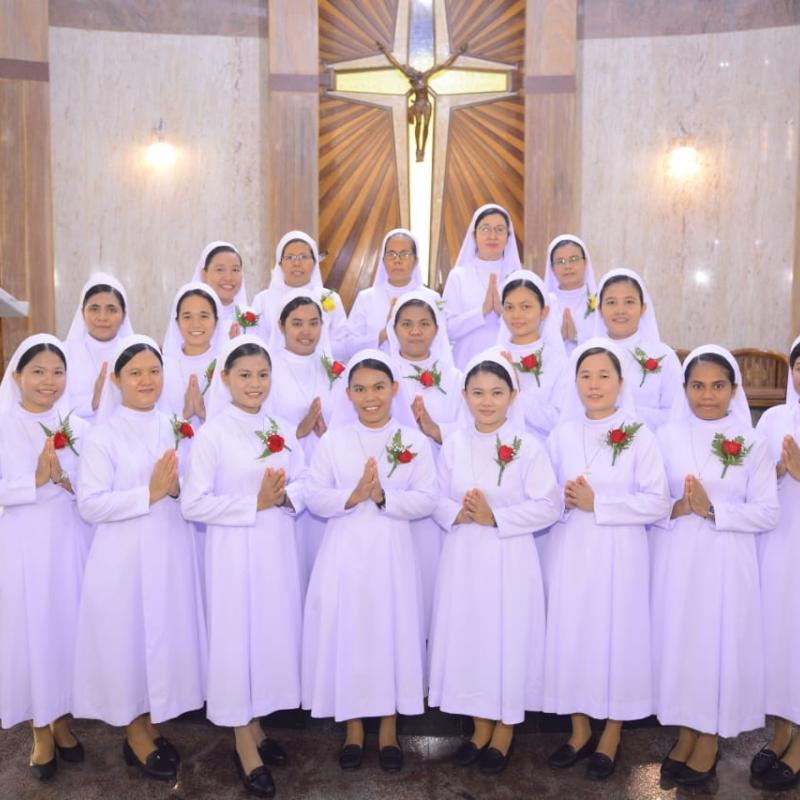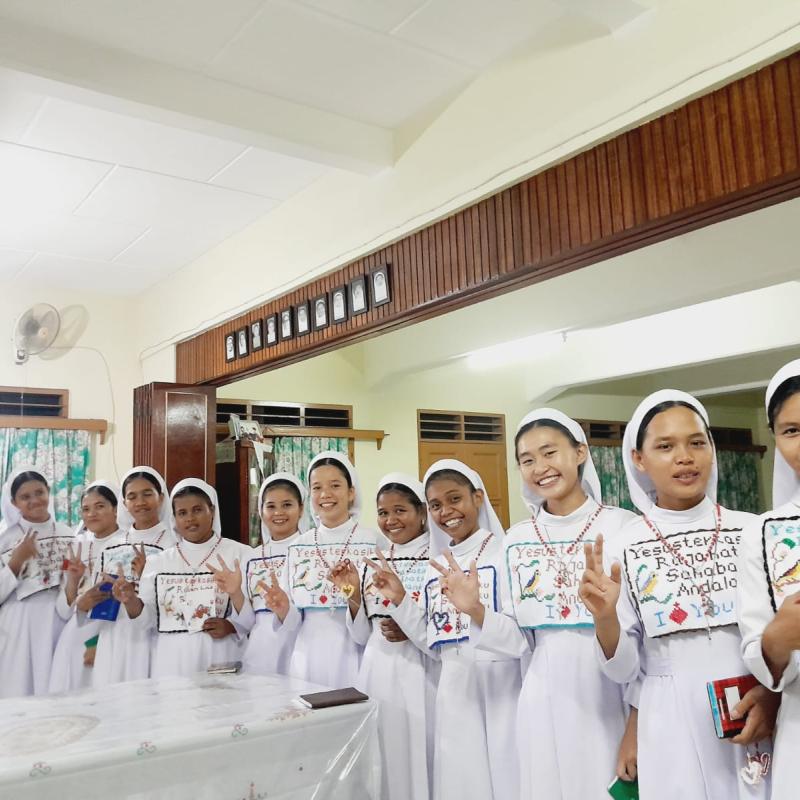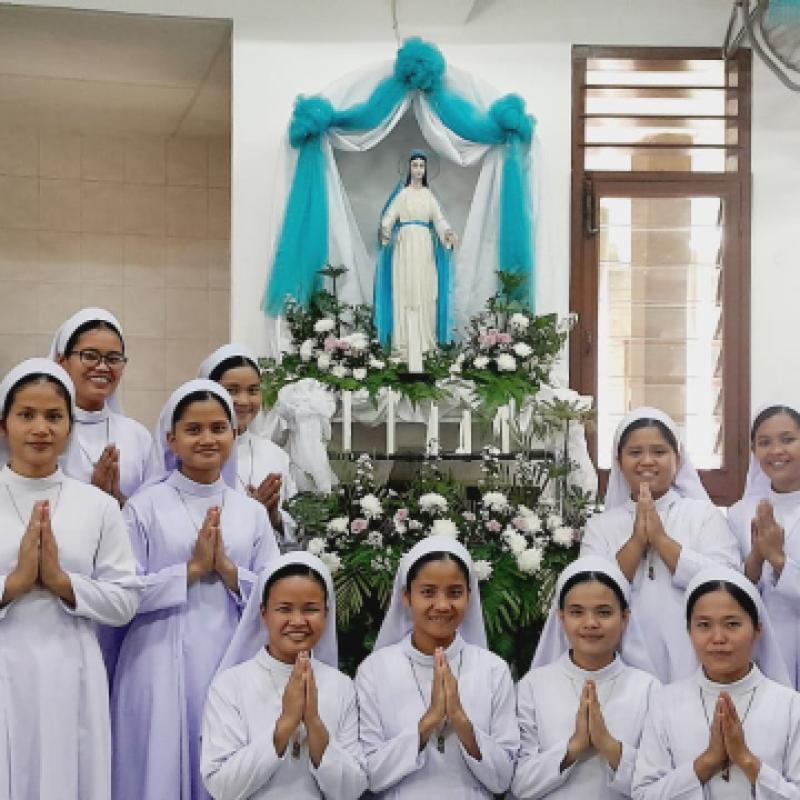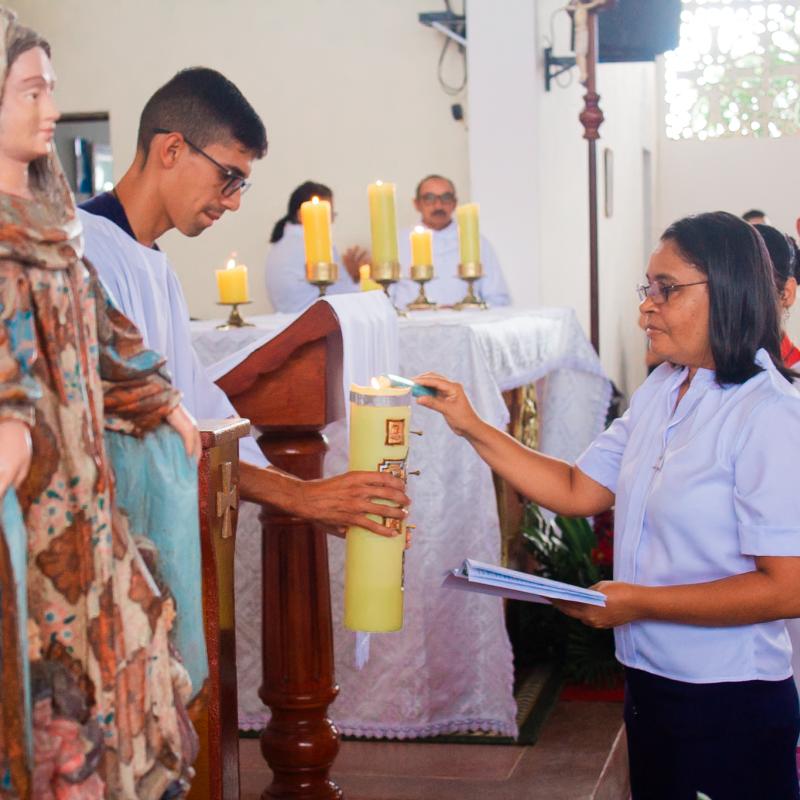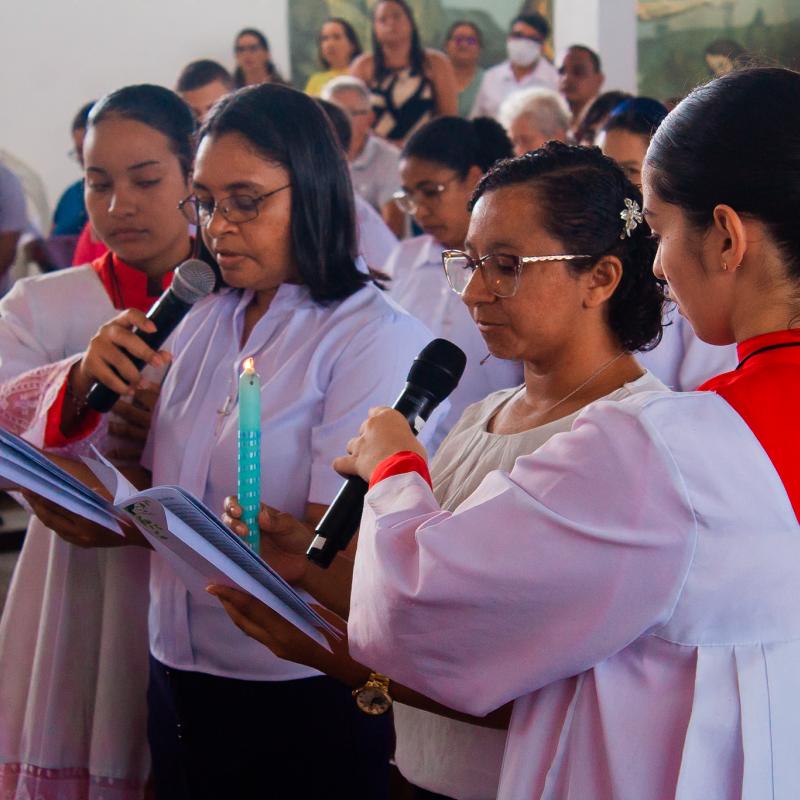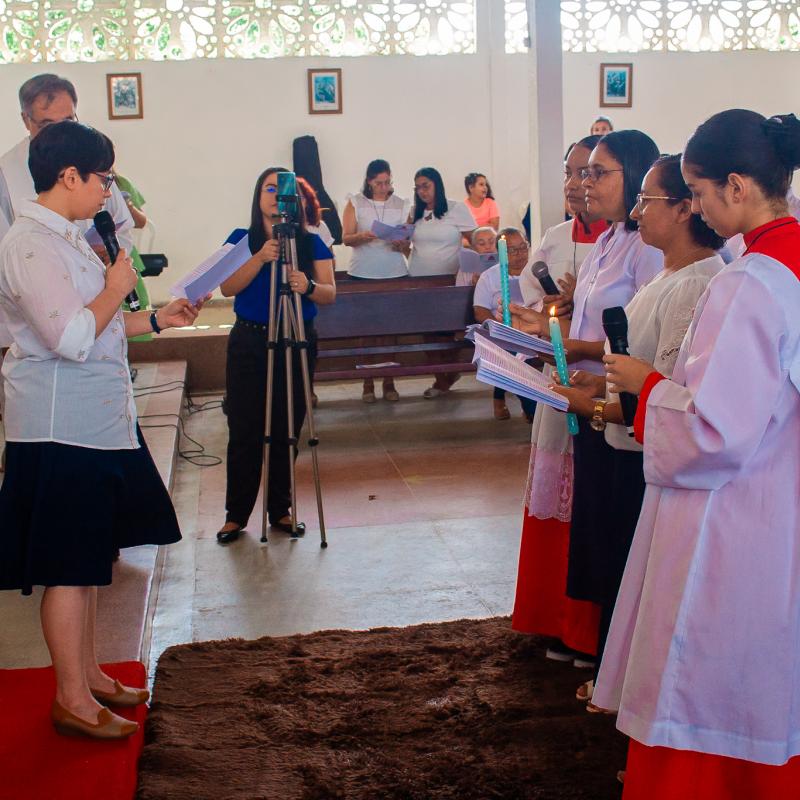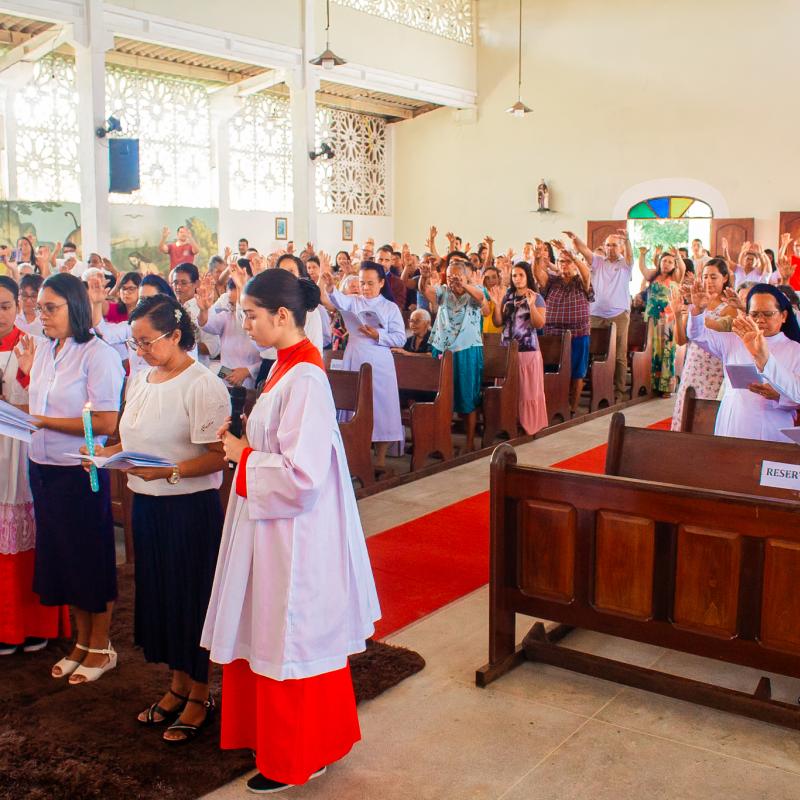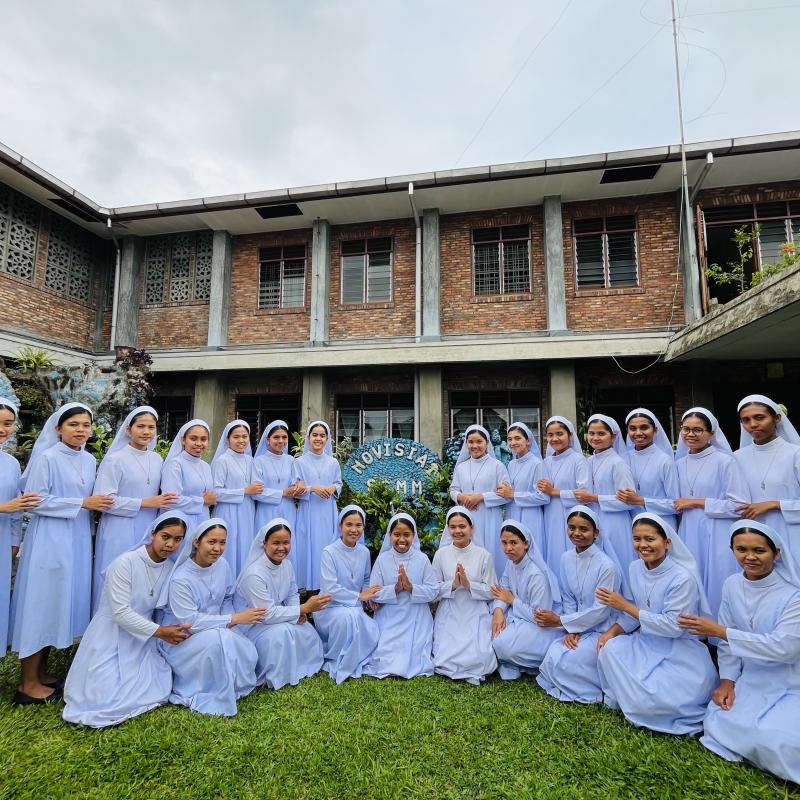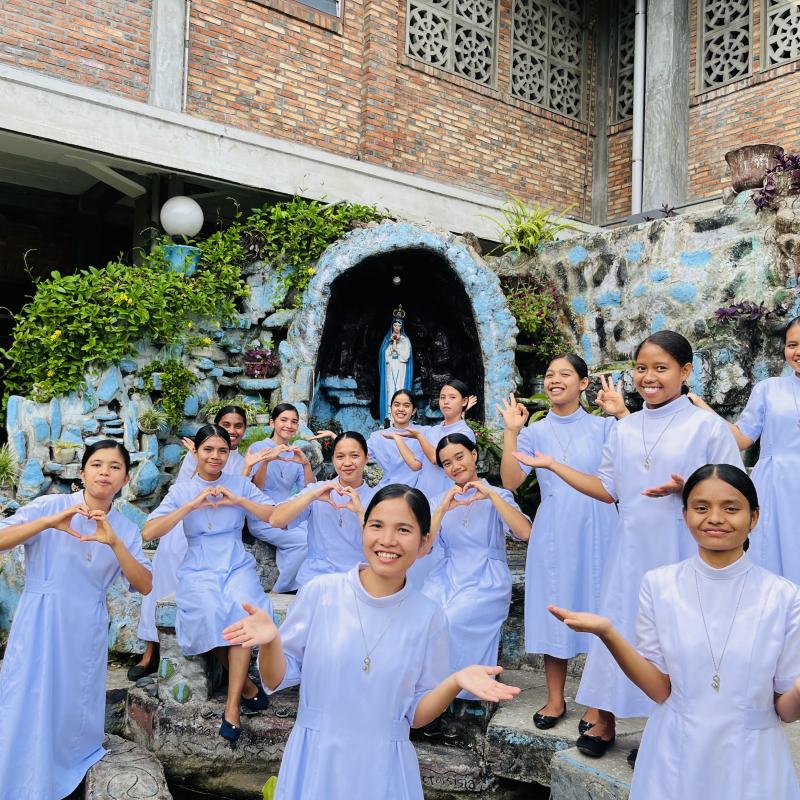Stages of initial formation
Postulancy Period (6 months – 12 months)
A period for developing maturity in order to grow in human and Christian maturity This growth is necessary in order to make free and responsible life choices in response to God's call and to prepare for entering the novitiate
Novitiate Period (2 years)
Religious life begins with the novitiate, during which novices are guided toward an intimate union with Christ, through silence, solitude, prayer and generous giving of self to community and apostolic activities. The novitiate period allows the novices to understand their divine calling, experience the order’s way of life and become familiar with its spirituality, charism, and identity of the congregation. The novitiate period concludes with the profession of temporary vows. It is a period for self-development. growth and development in the human, spiritual, religious, and SCMM dimensions.
Vows: path of freedom and love
In Religious Life, vows are not meaningless renunciations, but choices that point to a new way of living. They reveal
a heart totally surrendered to God and committed to the transformation of the world. In our times, poverty,
obedience, and chastity continue to be prophetic signs—concrete responses to the love that calls and sends us forth.
Chastity: love that becomes self-giving
Chastity is not the absence of affection or the castration of desire. On the contrary: it is the choice to love more and better, with an undivided heart, open to all. It is freedom that allows healthy, generous, and caring bonds to flourish. In this vow, the consecrated woman reveals that God's love is an inexhaustible source of life and tenderness for the world.
Obedience: listening that transforms
Obedience is not blind submission, but openness to the Spirit who speaks to the heart and in history. It is discerning God's calls and welcoming the signs of the times with wisdom and courage. To obey is to walk together, to seek the Father's will in fraternal communion, taking on the mission with freedom and confidence. The religious who lives this vow becomes an instrument of unity and peace.
Poverty: Simplicity that Liberates
The vow of poverty does not mean living in deprivation, but living in freedom. It is recognizing that the value of life is not in the goods we accumulate, but in the relationships we build. Evangelical poverty is solidarity that becomes action, it is sharing that generates new life, it is caring for our common home. Those who embrace this vow proclaim that true wealth lies in love and in the joy of serving.
A sign of hope
By living the vows with joy and authenticity, the consecrated woman witnesses that it is possible to be happy by putting the Gospel at the center. She becomes a presence of light, justice, and compassion, announcing that the Kingdom of God already happens when someone loves without reserve.
Temporary profession (Juniorate) (5 - 8 years)
The juniorate stage of formation begins when a novice professes her first vows. She professes vows of chastity, poverty and obedience. During this time, she deepens her personal commitment to following Christ, her personal identity, and her sense of belonging to the SCMM Congregation. She realizes and expresses her complete personal participation in carrying on Christ's mission through the apostolic mission. With commitment and determination, she moves towards a more certain decision to renew her vows, until she finally decides to make perpetual vows.
